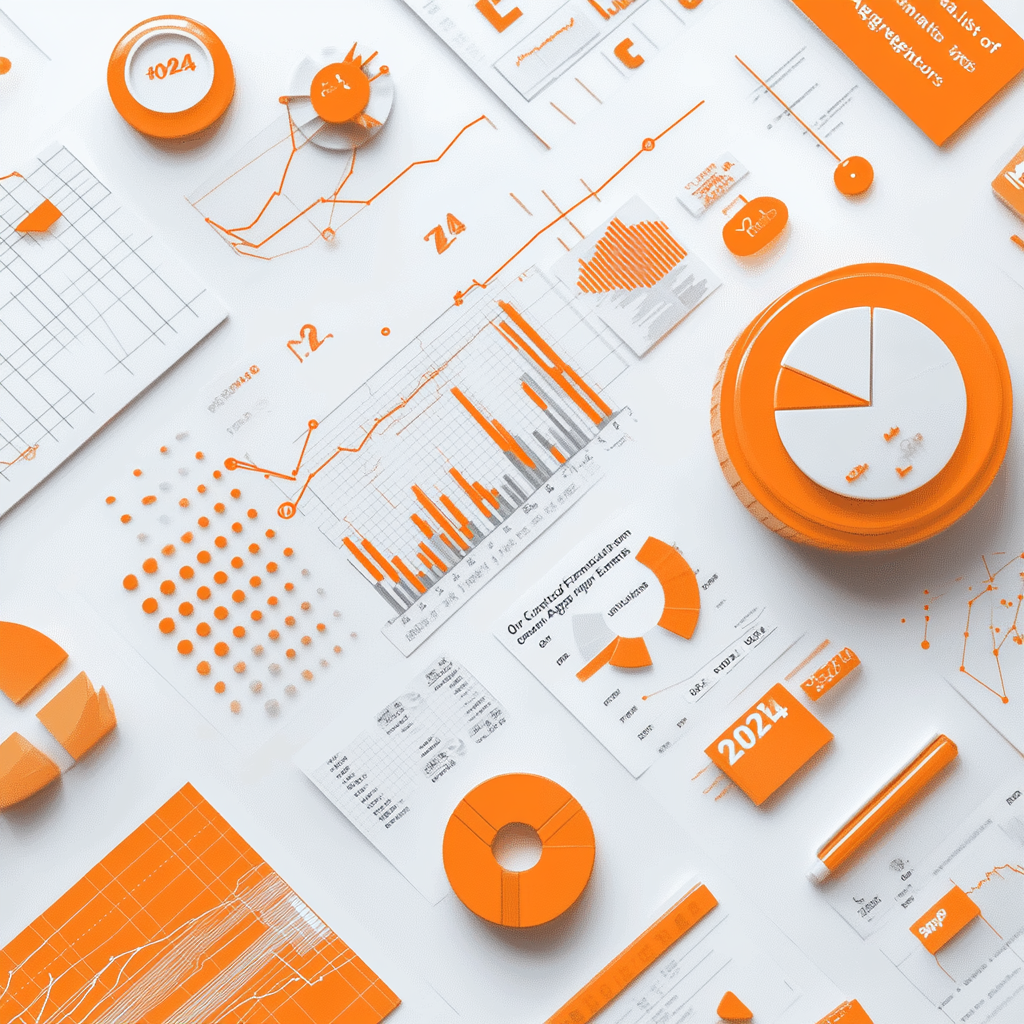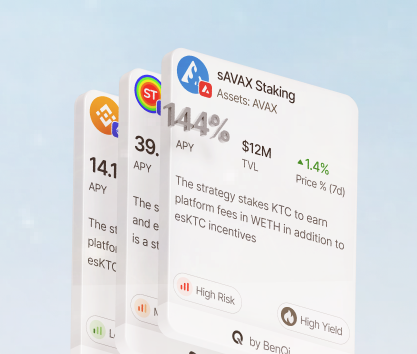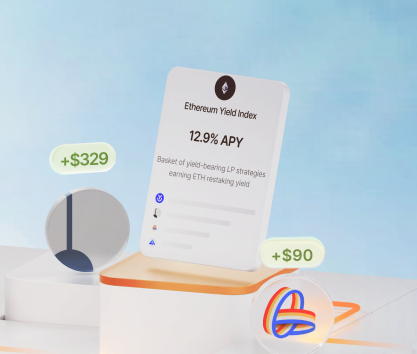A contemporary investor is not a constantly tired floor trader drowning in papers and reports while trying to organize and keep track of a portfolio with a dozen stocks. We have access to a rich variety of useful tools that help us arrange, categorize, and monitor hundreds of digital assets. Financial aggregator tools bring order to the chaos of modern crypto trading and yield farming.
What are financial aggregators?
The term and concept started appearing in the early 2000s. The internet was changing the way we handled everything including finances and banking. The first popular versions of such projects were quite limited and allowed users to personally keep track of bank accounts, credit cards, and even some investments. The most obvious entry barrier was the manual work associated with managing what were essentially glorified accounting journals. Many people simply did not want to update their records regularly.
The success of these tools was largely secured thanks to those who managed to improve budgeting and reduce expenses without using help from financial advisors and other paid professionals. Slowly but surely many started thinking that using aggregators and even paying for them was not a bad idea at all. During the dawn of Web 2.0, these instruments became mainstream. A contemporary investor cannot successfully navigate the complex world of finance without financial aggregators.
The benefits of financial aggregators
Consolidating all finances and active investments in one place to track them efficiently is a great way to improve the overall healthiness of your portfolio. Having a good overview of assets under management gives you more context for decision-making and updates information quickly allowing for more time to react to rapidly changing market conditions.
CoinMarketCap tracks over 23,000 different digital assets including mainstream layer 1 tokens like Bitcoin, Ethereum, and Litecoin on top of thousands of layer 2 tokens and NFTs. A typical retail trader will interact with at least 3 blockchains and over 50 different assets throughout their career. Successful investors often juggle dozens of coins simultaneously while staking, lending, borrowing, and otherwise utilizing their holdings to generate higher returns and diversify investments.
To top it all off, the crypto market never stops to catch a break. All trading platforms are active around the clock making it very challenging for all market participants to keep track of price changes and important news if they do not use some app to bring all this information together and neatly organize it in a comprehensive manner.
There are many types of financial aggregators:
- Personal bookkeeping applications with features that help you control expenses and income.
- Applications with slightly expanded functionality catering to business owners and corporations.
- Highly specialized websites where investors can keep track of various assets.
The last type can be further subdivided into two categories:
- Traditional platforms offered by the old guard like MX Technologies and Finicity.
- DeFi projects that cater to the audience of crypto enthusiasts and investors (Zapper or 1inch).
If you plan to work in the crypto market, it is hugely important to learn how to use modern DeFi apps that focus on self-custody, automated portfolio tracking, and instant asset swapping. According to MX technologies, over 91% of all consumers in the fintech sector highly value financial aggregators. In the DeFi sector, these platforms are among the fastest-growing projects.
These tools have incredible advantages that will elevate your investment game to the next level:
- Real-time asset tracking. Volatility coupled with the 24/7 nature of the crypto market makes it quite hard for investors to efficiently monitor their portfolios. Financial aggregators help over 65% of crypto users stay informed by checking their assets daily (according to CoinGecko). Access to detailed information is crucial for the long-term success of any investment activities.
- Comprehensive data consolidation. it is common for any retail investor to keep assets in separate accounts and wallets. CryptoCompare revealed in its report that an average trader engages with up to five exchanges at the same time. The diversity of holdings often forces investors to use at least some form of data consolidation.
- Better analytics and reporting. Fancy graphs and charts can help you make informed decisions. In a study by experts from The Cambridge Centre for Alternative Finance, it was revealed that over 70% of crypto traders use different analytical tools to enter market positions. The information gathered by a good aggregator is often sufficient to make sound adjustments to a portfolio.
- Tax reporting. Users from the US and many EU countries have to report their investment activities in the crypto industry. A survey conducted by CoinTracker revealed that 60% of crypto investors struggle to correctly report their capital gains and losses to the IRS. They consider reporting the most challenging aspect of investing. Many modern platforms offer ways to generate comprehensive reports within different national taxation frameworks.
How to choose a financial aggregator
Selecting any tool intended for enhancing your financial management routines is a very important process. The current landscape of the DeFi sector is mature enough to offer several excellent choices that differ from each other in technology and visual design but offer very similar products. Many of these services are reputable and have good track records.
Picking between paid and free financial aggregators is not a big deal in the crypto world. Many platforms like 1inch, Harvest Finance, and others encourage participation through rewards and revenue sharing. Instead of paying for the service, you may get paid for using it! In general, platforms that have paid plans usually offer more useful features and better customer support. We compiled a list of financial aggregators that have all of these features and more.
When it comes to selecting the right tool for the portfolio tracking job, you should pay close attention to several factors:
- UX/UI. Up to 71% of all users of financial services think that the digital experience is important according to a survey conducted by MX Technologies. The ease of navigating through the menus and comprehending the data often determines the efficiency of investment decision-making.
- Security and reliability. Work with platforms that employ multi-factor authentication, up-to-date encryption technology, and other security measures to protect personal information. Sticking to self-custody is also quite important.
- Supported Dapps. The DeFi sector has 399 officially listed Dapps on Alchemy. The total number of projects is higher but even these 4 hundreds of most relevant ones are enough to ensure that a typical investor will engage with at least a dozen. Make sure to work with an aggregator that supports as many as possible.
- Tax reporting. If you live in the US or EU, using a platform that offers convenient tax reporting functionality compatible with your local taxation framework is a big upside. While not necessary, such features serve as QoL improvements and offer something tangible to contemporary crypto investors.
- Customer support. Many decentralized projects are governed and managed by communities. Beefy Finance and Harvest Finance both have populous Discord servers where you can ask for help at any given time. Pick platforms that have active communities on multiple social media websites and offer direct user support.
DeFi projects that work as good financial aggregators often offer additional functionality like instant asset swapping, yield farming, and real-time portfolio tracking. Having a variety of tools at your disposal is hugely important. According to MX Technologies, 41% of all fintech product consumers value the ability to effortlessly access different types of features. Check out our list of financial aggregators!
Beefy Finance
Founded in September 2020, Beefy Finance is a specialized platform that focuses on providing automated yield farming optimization. While its main goal is to benefit crypto investors seeking consistent returns, this Dapp also features a comprehensive portfolio tracker with information updated in real-time.
You can connect CDC Connect, MetaMask, Coinbase Wallet, WalletConnect, Trust, and Fireblocks to immediately access all the data you need. Beefy also has its proprietary Cowcentrated Liquidity Manager or CLM that can handle yield farming for you. The interface of the main app can feel overwhelming, but the learning curve is smooth allowing for a good user experience.
Harvest Finance
This platform was also launched in the same month and year as Beefy. Incidentally, it also has similar functionality and features primarily on automated yield farming optimization. It also works as a financial aggregator and allows users to track all rewards and interest on multiple protocols. If you want to build a source of passive income with crypto, Harvest Finance is a great place to start.
The lack of features that define aggregators can be a deal-breaker for some users who do not engage heavily in staking, lending, or market making. Refer to the list of financial aggregators for options that go beyond the basic functionality.
Zapper
This on-chain analytical Dapp is a great central hub for all your assets. The data is pulled from blockchains right after you connect a wallet (Coinbase, Connect, or MetaMask). The interface is neat and comprehensive yet leans toward mobile users. If you spend most of your time with a laptop, the layout may not impress you.
Zapper does not overwhelm users with unnecessary graphs and information. Everything is neatly packed in a couple of menus. Among beneficial features, you will certainly enjoy the instant asset swapping and cross-chain bridges connecting different blockchains including Arbitrum, Polygon, Ethereum, and others.
Zerion
The portfolio tracker is only one of the services offered by this ecosystem that includes digital avatars, development suites, and more. It would win any financial aggregator comparison if we were to judge based on the variety of products offered by a platform. In terms of its tracking capabilities, it is a solid choice that will not wow anyone.Zerion has its proprietary wallet software but also supports MetaMask, Connect, and Ledger. The information is consolidated in real-time. You can start investing in crypto indices, engage in staking, purchase all sorts of coins, and simply manage your holdings in one place. The paid plan allows you to connect up to 7 different wallet addresses or cut fees by 50% for a single wallet connected to the platform.
Rivo
After launching in 2023, the project experienced a period of growth and added a multitude of new features including a comprehensive asset tracker and several investment products. Rivo is a good choice for newcomers and veterans alike thanks to its convenient UI and an expansive lineup of instruments tailored to improve your decision-making.
We also rate this platform highly due to its extensive catalog of integrations including MetaMask, WalletConnect, Beefy Finance, Yearn, Convex, and more. If you want to enhance your portfolio with something consistent and predictable, buying special investment indices can be a good idea.
1inch
While the list of financial aggregators is comprehensive, it would have been incomplete without one of the oldest DeFi platforms in this category — 1inch. It is a decentralized exchange that offers more than just asset swapping and bridges between 11 blockchains. If you connect one of many supported wallets, you can also track assets and investments associated with them.
1inch is a versatile project with a feature-rich interface and innovative investment products for novices and experienced investors. If you are looking for something reliable and tested by time itself, this platform should be on your shortlist.
The main takeaway
We encourage you to explore our detailed list of financial aggregators and try them all. Connecting a wallet and using basic features is free on all platforms. You can test every single project and pick what suits your requirements the most. What you should not do is try to track all of your holdings manually and venture into the complex world of crypto without tools that will make the journey easier.
Financial aggregators F.A.Q.
What is a financial aggregator?
It is an app or a website offering toolkits for portfolio tracking. Many such platforms also offer specialized instruments designed to improve personal finance management.
Which is the best financial aggregator?
Many market leaders offer good products. In the tradfi sector, MX Technologies and Finicity are reliable choices. Among DeFi projects, Zapper, 1inch, Rivo, and many others provide excellent portfolio tracking tools.
Are financial aggregators safe?
Decentralized solutions often encourage self-custody and employ advanced cybersecurity measures to protect communications between the blockchain and users. We suggest using common safety practices for any website: set up multi-factor authentication and always check the validity of wallet addresses you interact with.









